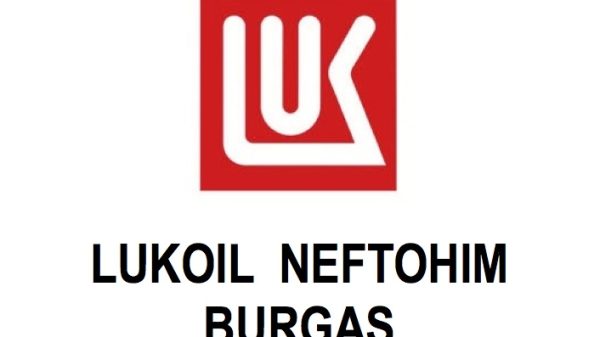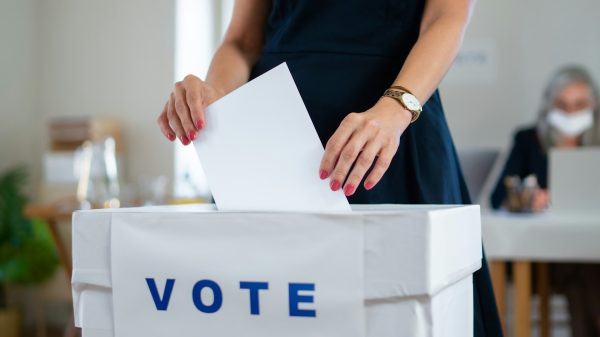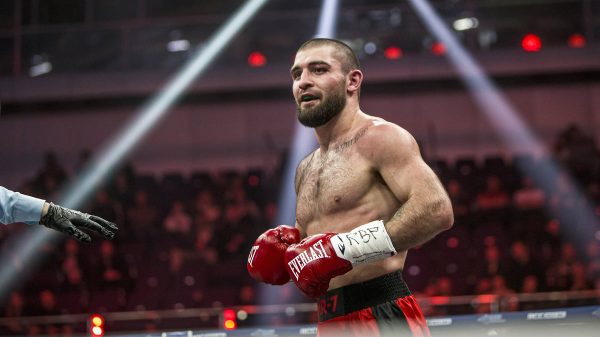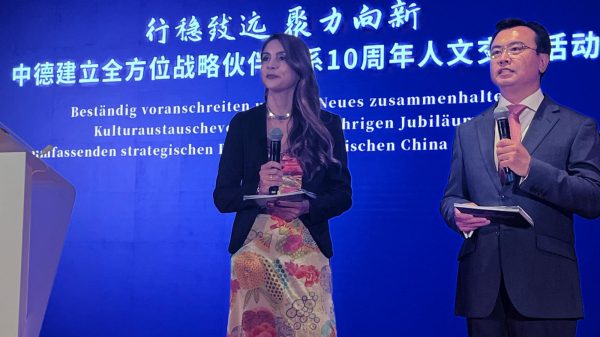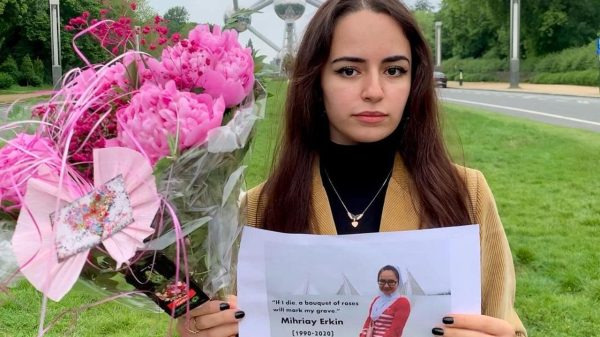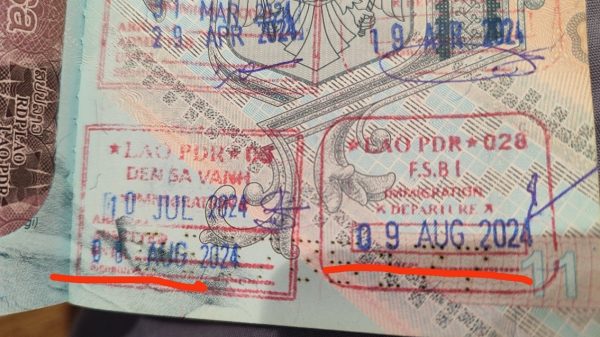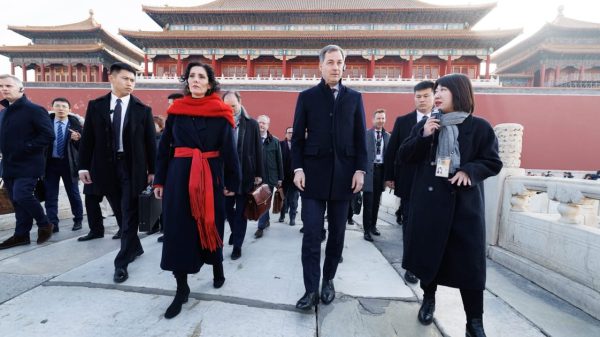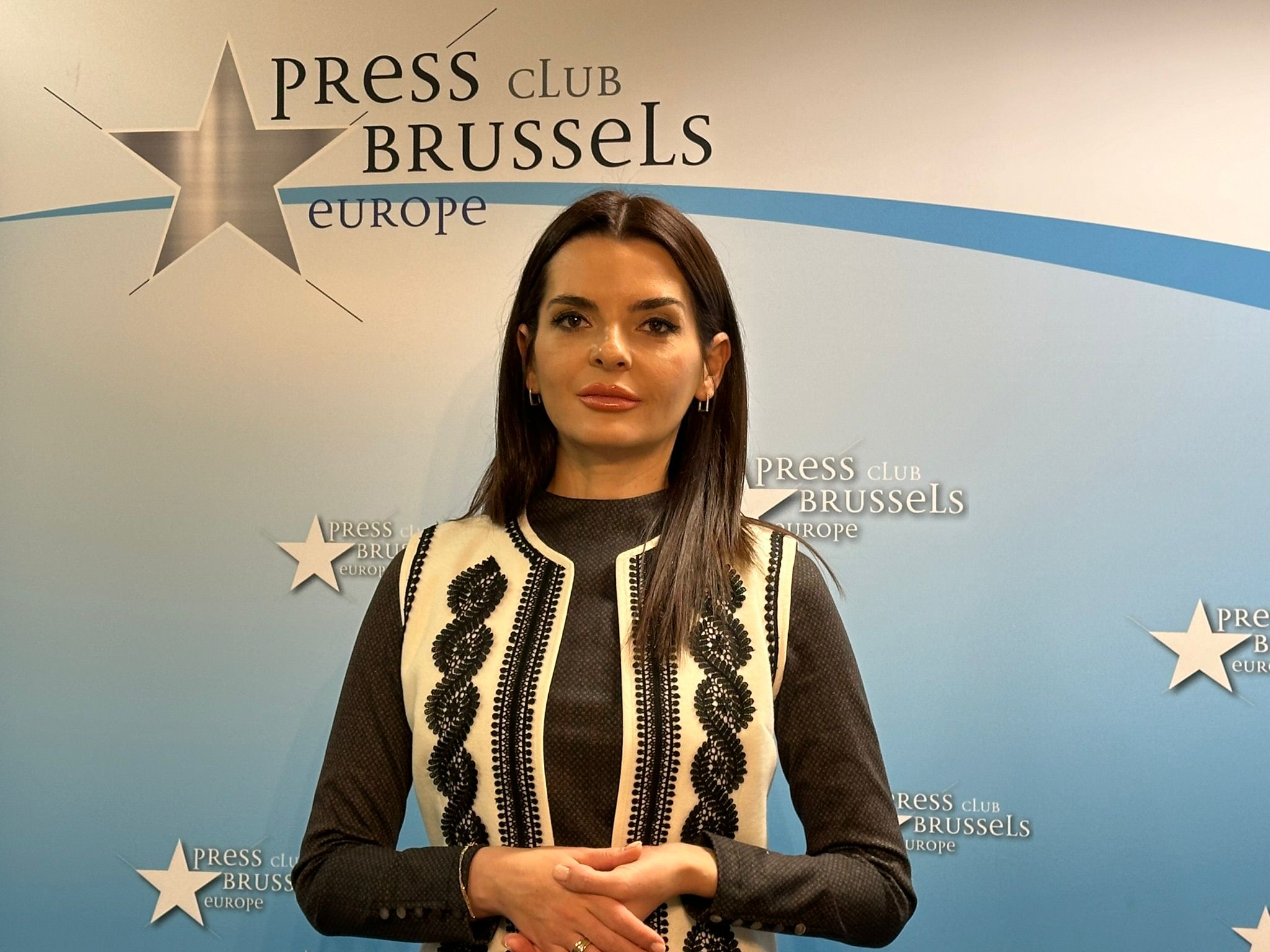The leader of the autonomous region of Gagauzia in Moldova has offered an olive branch to the country’s ruling party.
Speaking in Brussels, Yevgenia Gutsul made no attempt to disguise her bitter dispute with the central authorities, including the country’s president Maia Sandu.
But she pointedly stressed her desire to “reach out” and find a peaceful resolution to the current differences between the two sides.
AdvertisementIn what was a clear bid to defuse rising tensions, she said: “I want us to have good relations with the central government. We are always ready for compromise, to sit at the table and find common points of interest. That is my objective.”
Her visit to Brussels is timely as Moldova was told last week the EU will open accession talks with the central European country.
Gutsul was earlier this year elected head of the ATU Gagauzia, an autonomous region in the south of the country with a population of 160,000.
She was elected governor of the region, securing well over 50 per cent of vote with her nearest rival polling 47 per cent.

In a press briefing at Brussels Press Club on Tuesday she spoke about a range of issues including the economic “crisis” facing the region she represents, plus an ongoing conflict with Moldova’s central government.
Her rare appearance in the city comes after, last week, the EU opened accession procedure with Moldova, a decision which has been broadly welcomed.
But there are still continuing issues, some of which were recognised in a recent report by the European Commission.
Gutsul, who chose to speak in her native tongue, which has many similarities with the Turkish language, told reporters she had “a lot to say about our small republic.”
She noted there had been “growing attention” to the situation in Gagauzia, not least since the “disintegration of the Soviet Union” which, she said, had “exacerbated” ethnic tensions in the region.

She reminded reporters that Gagauzia had been “proclaimed a republic” but that the central authorities in Moldova “still refuse to engage in dialogue with us.”
This, she noted, illustrated the “need for far-sightedness and for us all to sit together at the table.”
She said, “I am proud of our history and our nation and the fact that we have built a peaceful way to the future.”
Next year will, she said, be an “occasion to celebrate” as it is the 30th anniversary of the proclamation of the region’s autonomy.”
Today, people, particularly the younger generations, consider themselves as both citizens of Moldova and Gagauzia but she said that “a number of issues remain unsettled.”
She said, “Over the past 30 years the central authorities have, step-by-step, tried to abolish the rights and autonomy of Gagauzia, none more so than under the current president.”
She cited as an example, the “exclusion of our territory from the national integration commission.”
She said that, in the Spring, the central authorities and president had “refused to follow national law and include me in the Government.”

Both, she said, have also “refused to sign amendments to the tax code that would have reinforced our autonomy.”
This, she told reporters, had resulted in the region’s revenue being cut by some €7 million.
“As a result, we now see threats to regional social programmes, including help to the elderly and the young.”
The authorities, she said, had also imposed “artificial obstacles” to the autonomous status of Gagauzia.
“They are also trying to impede gas supplies to the region.”
The president was not immediately available to comment on the claims but Gutsul said that while relations between the two sides, central government and the region, had “always been difficult” in the past they had “managed to overcome them via dialogue.”
Gutsul, who before entering politics had worked in both the private and public sectors, said a “fragile trust” that had previously existed between the two sides was in danger of being “destroyed.”
The central authorities, she said, had “pursued a blatantly hostile stance towards Gagauzia” adding, “They are trying to silence us and the EU delegation in the country seems to choose to ignore these problems.”
She added, “This is why we decided to come to Brussels today to explain our position.”
In a Q and A that followed, Gutsul said that the elections this year had been “very hard for me and my team.”
“The main opposition came from the central authorities, including the president, who put up all kinds of obstacles. They tried not to have the victory approved, attempted to arrest party activists and put a lot of pressure on me personally after the election.”
“The authorities’ bid to have the result declared invalid seemed to be based on all kinds of artificial pretexts but my victory came from a stable, grassroots support and was a protest against the central authorities.”
“The Electoral Commission approved the results of the elections as honest and legitimate and have given me the required mandate to govern.”
In reply to a question from this website, she added, “My life has radically changed since the election but, to be honest, I had been preparing myself long before for this difficult period in my life. I grew up in a village and I know what hard work means. It does not make me afraid and an extra incentive is the support I had of the local people in the elections.”
She said that despite differences in the country she still “hopes and believes we can overcome these problems through discussion.”
Gutsul noted that in the 5 months since her election key progress had been made, including the construction of new roads and in providing assistance to the elderly.
“All this despite the big reductions in our budget in the region,” she said.
Turning to another question, on the region’s links to Russia, she said, “We are not necessarily pro-Russian. We are pro-Moldova and want to be friends with those from all over the world, including the EU.
“We want warm and friendly relations with everyone and are ready to meet representatives from the EU and also want to work with all the citizens of Moldova.”
On the decision to grant accession talks, she was slightly ambivalent but noted: “In a 2014 referendum a total of 96percent of those who voted said that if Moldova chose the path towards membership of the EU and then loses its independence then Gagauzia reserves right to its independence.”
She added, “I want us to remain friends with everyone but maybe we should have another referendum to find out what people want?”
She also noted that the region’s border was close “to where a war and a horrible conflict is raging” and that “Moldova has received tens of thousands of refugees from Ukraine.”
“Our main aim is to preserve peace but Moldova should remain totally neutral.”
Her primary current task she said is the economic “crisis” facing the region, saying that most live in poverty, especially the old. Energy prices have grown by 36 per cent but pensions have risen by only 18 percent while food and basic supplies are becoming increasingly difficult to access.
“This is the reality of the region.”
Gutsul, who will serve a 4-year term, said that in her first 100 days in power in a region known as the “land of dreams,” she had overseen the development of infrastructure such as road building.
She told reporters “We have overcome problems in the past without bloodshed and we can do it again. Five months ago when the public elected me they did so because they thought we could make Gagauzia prosperous and my first aim is to have our citizens change their lives for the better.”
She added, “I want us to have good relations with the central government. We are always ready for compromise, to sit at the table and find common points of interest. That is my objective.”
“Restrictions of my powers did not start with me being elected but is something that has been happening over the years. These powers have been cut over the years and we want to recover these rights, including restoration of a prosecutor’s office and in the area of tax collection.”
Turning to her appointment as a member of the Moldovan government, she said, “The president has not yet signed a decree on my parliamentary position but this is a right that is enshrined in our law.
“The justice minister recently said the president cannot force herself to sign this decree and endorse my appointment and the president makes a show of her unwillingness to do this.”
She noted, “The question as to whether she will do this is, yet, unknown.”
Neither the president nor anyone from the Moldovan government were available for comment.






